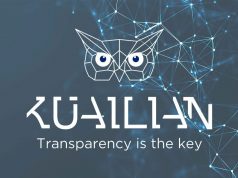Switzerland is well-known for its friendly attitude towards Bitcoin. For example Bitcoin startups like Xapo, Shapeshift, Ethereum, Monetas, and Bitcoin Suisse are situated in Canton Zug.
Officially, companies wanting to do business in Switzerland need an approval by the Swiss Financial Market Supervisory Authority (FINMA). Nevertheless, no Bitcoin company has been licensed by the Authority yet, but they still may operate in the country.
Vinzenz Mathys, a FINMA spokesperson confirmed this reality to Bitcoin.com this week that “in the field of AML [anti-money laundering] regulation in Switzerland, service providers not subject to prudential supervision must either be affiliated to a self-regulatory organisation or be supervised directly by FINMA.” He also revealed that:
For the time being, no Bitcoin company holds a license of FINMA.
FINMA has no specific provisions of digital currencies. “The use of bitcoins as a means of payment is not state-controlled”, its website states. Anyone paying in bitcoin or receiving payments in bitcoin needs no license.
However, some Bitcoin-related activities are subject to Switzerland’s Anti-Money Laundering Act including buying and selling bitcoin on a commercial basis and operating trading platforms. These service providers “are obliged to find out whether they are in compliance with licensing requirements under financial market legislation”, FINMA states.
To be compliant, they have two options. The first is to be licensed by FINMA to operate as a ‘directly supervised financial intermediary (DSFI)’. There are currently 194 financial intermediaries holding FINMA licenses, but none is a Bitcoin company. The alternative is to become a member of a self-regulatory organization (SRO).
An SRO is an organization that has met certain criteria set out by FINMA. Its members are financial intermediaries that are not licensed by FINMA. Among other duties, SROs are responsible for ensuring that their members comply with the requirements in accordance with the Swiss Anti-Money Laundering Act and imposing penalties on any member not in compliance.
Currently, FINMA recognizes 12 SROs in total, Mathys confirmed to Bitcoin.com. The largest SRO, the VQF, is the only one that is actually located in the Canton of Zug.
Some Bitcoin companies are already members of the VQF SRO such as Bitcoin Suisse, BTC Express and Bity.
Recently, wallet provider Xapo has received a “conditional approval” by FINMA to operate in Switzerland after almost two years of much efforts and investment, according to founder and CEO Wences Casares. “This approval is contingent on several factors, including membership in a Self-Regulatory Organization (SRO)”, Casares said.
FINMA reportedly took a long time to understand Xapo’s business model in order to decide whether it should be considered a bank or a financial intermediary. If considered a bank, Xapo would have to obtain a banking license which is more complicated to qualify for. However, last week, FINMA concluded that Xapo does not need a full banking license, “because the safe-guarding of private keys wasn’t to be compared with conventional banking operations such as account keeping”, Xapo managing partner Olga Feldmeier told finews.ch.
Xapo, being in the Canton of Zug, is likely to join the local VQF SRO like other Zug-based companies have. Regarding becoming a member of an SRO, Casares said “we are optimistic that we will meet the required conditions and be able to serve non-U.S. customers from our headquarters in Switzerland”.
In addition, Casares commended FINMA for having invested considerable amount of time and resources in the approval process, adding that “many regulatory bodies in similar situations would have rejected Xapo (and Bitcoin) entirely”. Therefore, he believes that:
FINMA has positioned Switzerland as a hub for fintech innovation and ensured Switzerland’s primacy in global financial services for decades to come.












